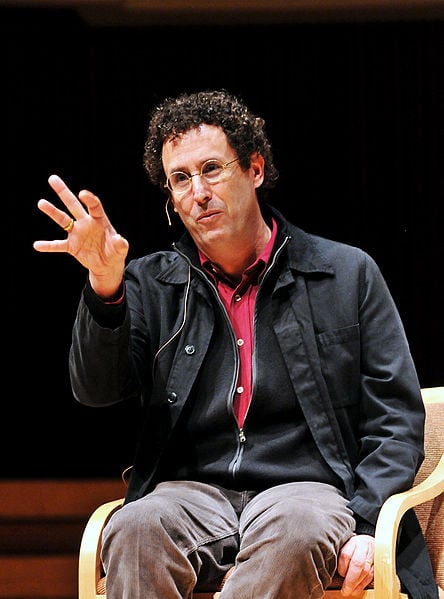
Best Plays by Tony Kushner
A Bit About Tony Kushner
Kushner is an iconic American playwright best known for his Angels in America plays (part one and part two). His play “Angels in America: A Gay Fantasia on National Themes, Part One: Millennium Approaches” debuted in 1993 and won innumerable awards, including the Pulitzer Prize for Drama and Tony Award for Best Play. The following year, “Angels in America: A Gay Fantasia on National Themes, Part Two: Perestroika” again won the Tony Award for Best Play. These plays are considered landmark plays for breaking stigma surrounding AIDS and giving voice to LGBTQ characters and stories.
Kushner was born in 1956 in Manhattan, United States, to two musicians of a Jewish family, and grew up in Louisiana. He studied a Bachelor of Arts majoring in Medieval Studies at Columbia University and then at the Tisch School of the Arts at NYU.

Following Kushner’s success in theatre, he had the opportunity to adapt Angels in America into an HBO mini series, writing the screenplay. He also co-wrote the screenplays for film, most significantly for the Spielberg film Munich and Mike Nichols’ film version of Angels in America. Kushner has also written a number of essays and novels.
Top Five Tony Kushner Plays
- Angels in America: A Gay Fantasia on National Themes, Part One: Millennium Approaches
- Angels in America: A Gay Fantasia on National Themes, Part Two: Perestroika
- A Bright Room Called Day
- Hydrotaphia
- Homebody/Kabul
Quotes by Tony Kushner
“Everybody knows that to love someone puts you at risk of loss and that is very frightening. It forces us into a recognition of limitations: life is not eternal. The more you are aware how much you need other people, the more you realise you are composed of connections to others – what they give you and you them – and you become aware their loss is going to be calamitous. There’s also the possibility of their losing you. It’s terrifying to contemplate. There’s an understandable impulse to run.”
“Everything has been a struggle, I would not trust anything that wasn’t.”
“To be with a group of people loving something and drawing great value and meaning from something collectively is an experience that — well, it’s a cliché now how hard it is to find those experiences. We’ve eliminated moviegoing as part of that thing. We don’t see movies in groups anymore, and that is one of the most important functions of theater.”

Leave a Reply